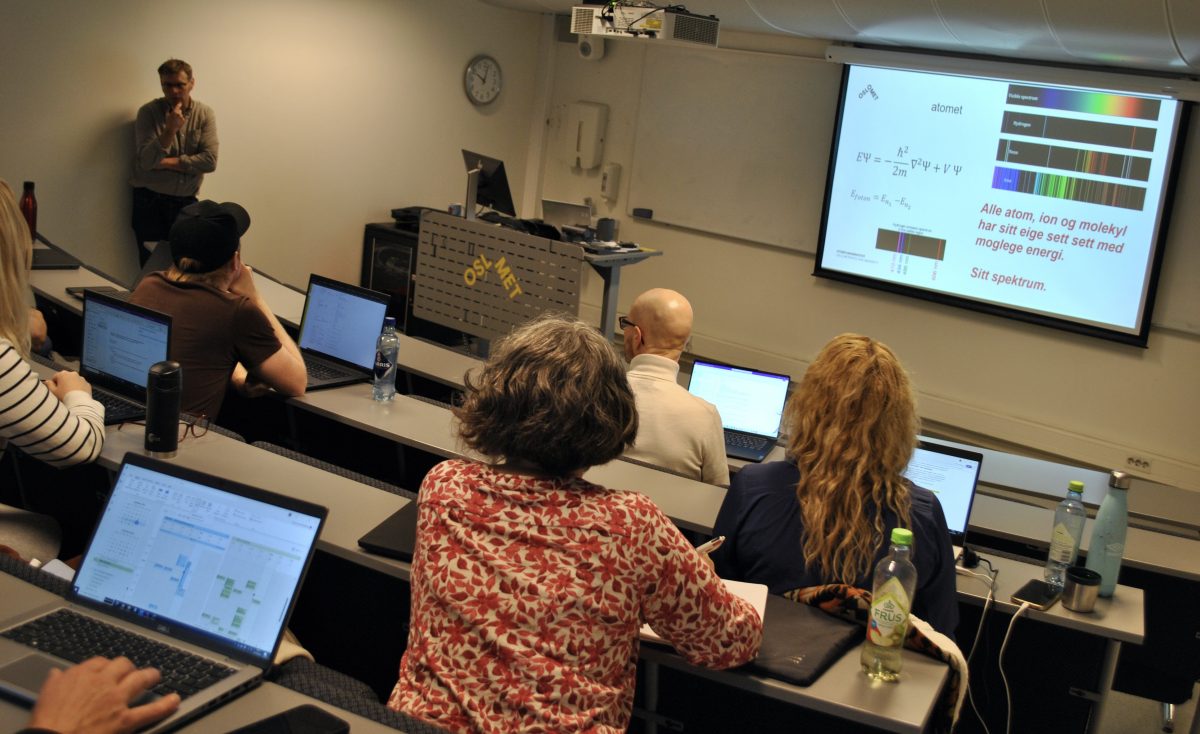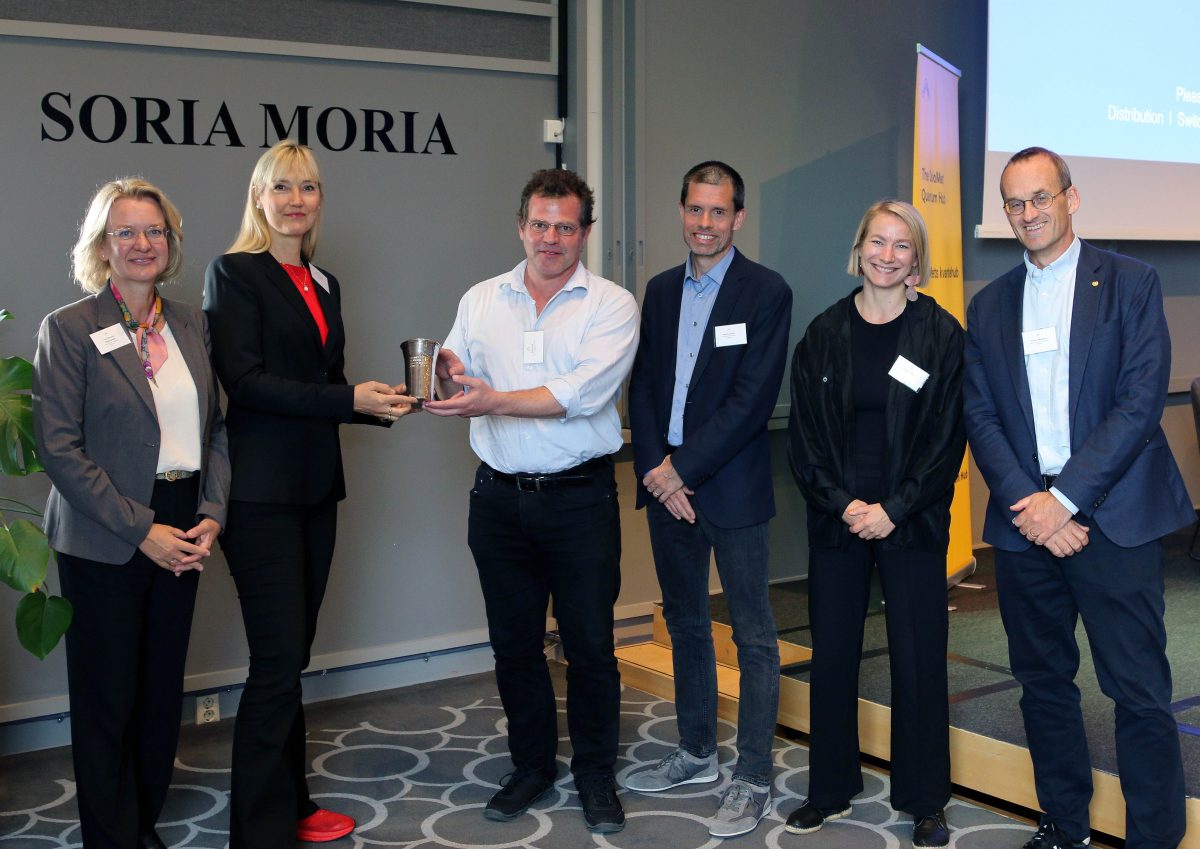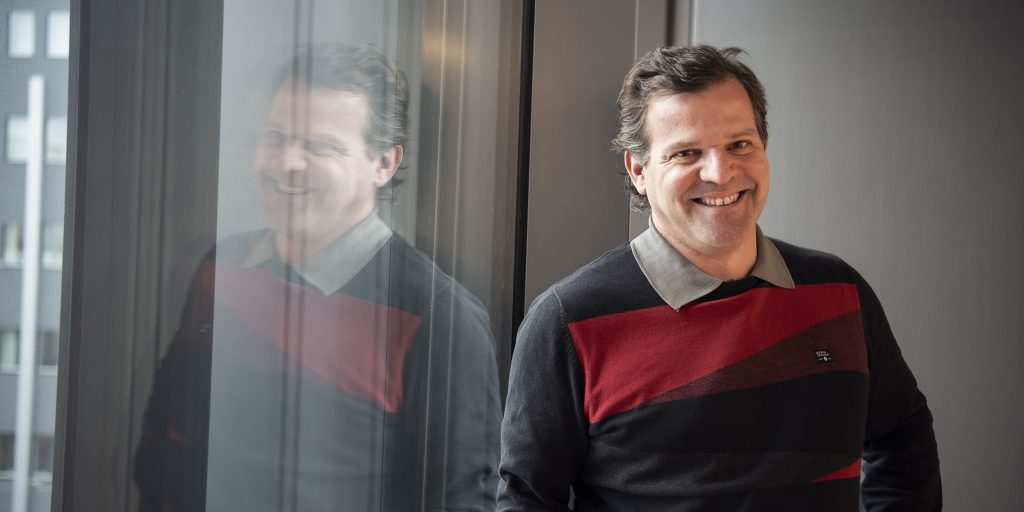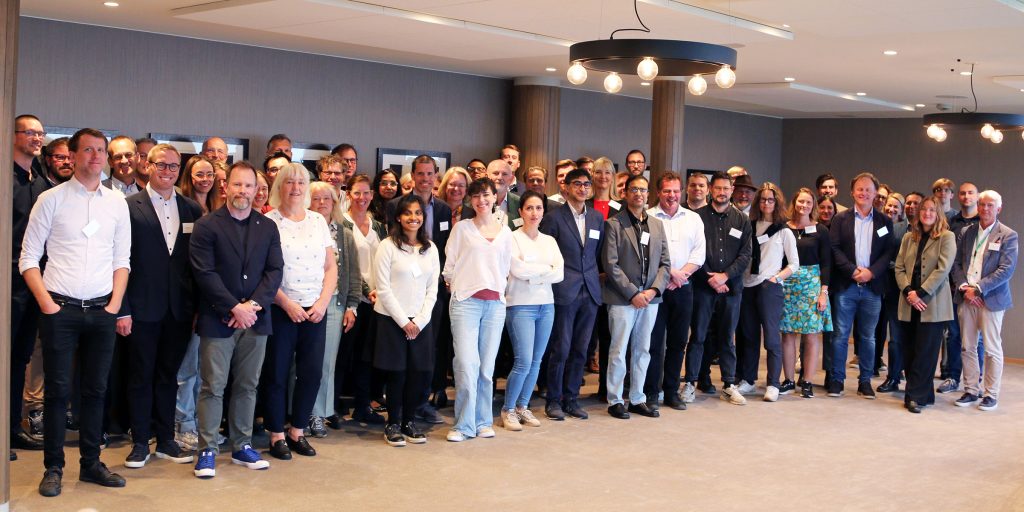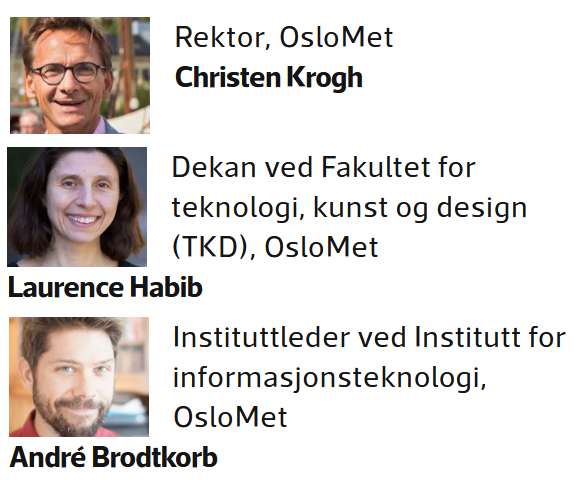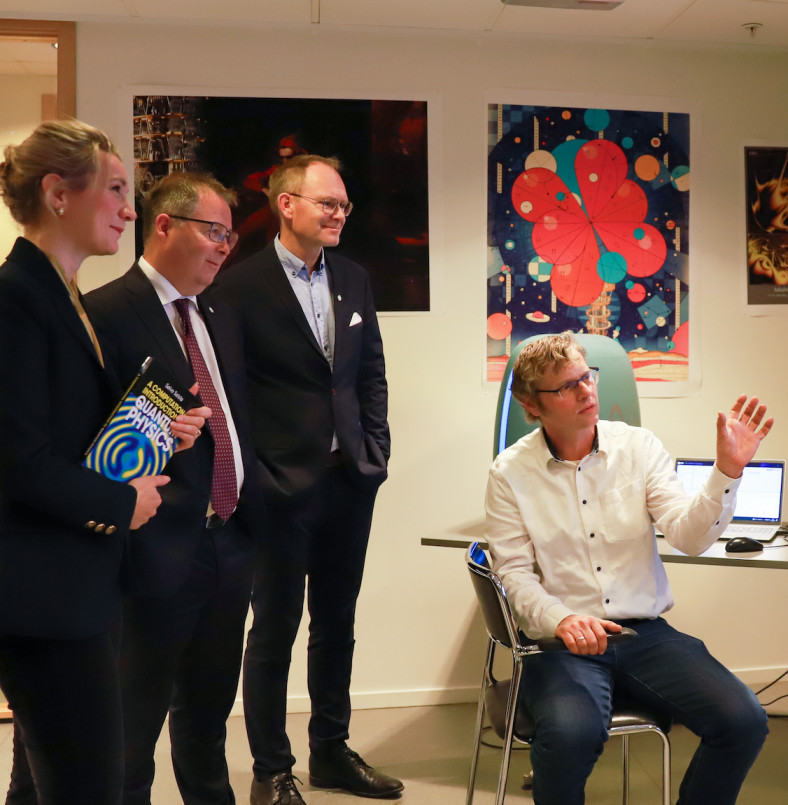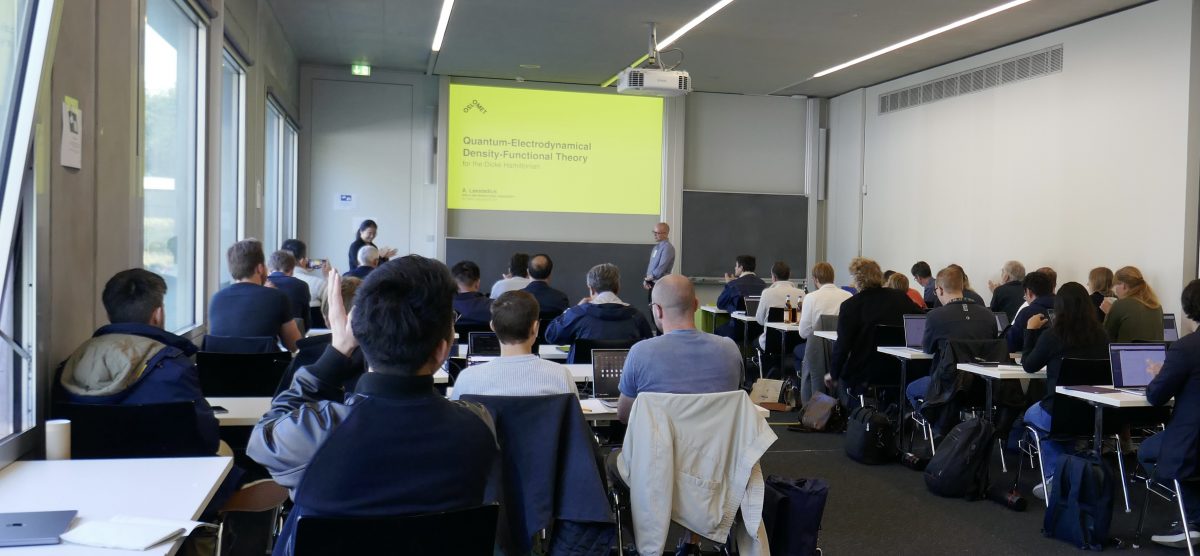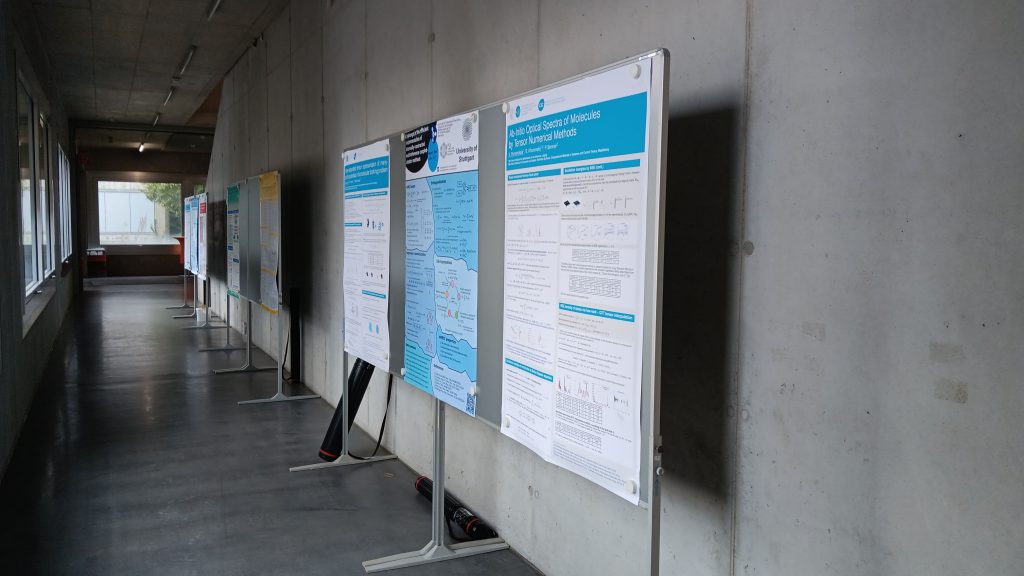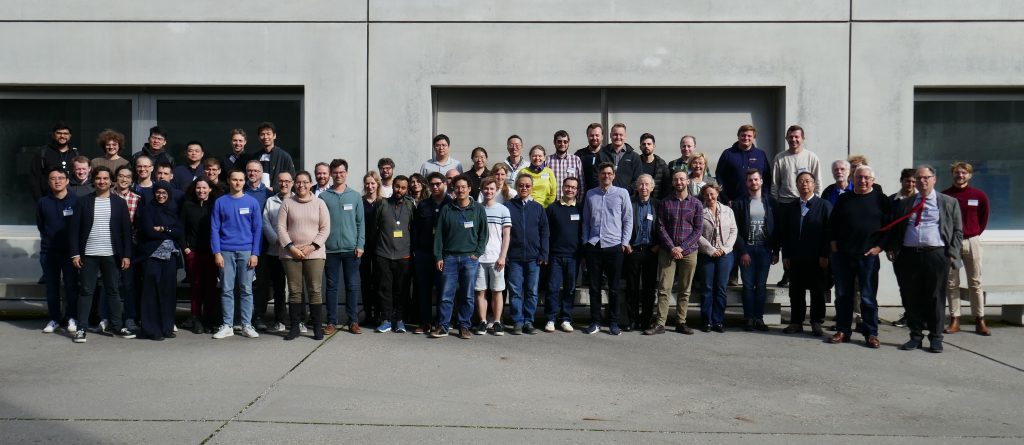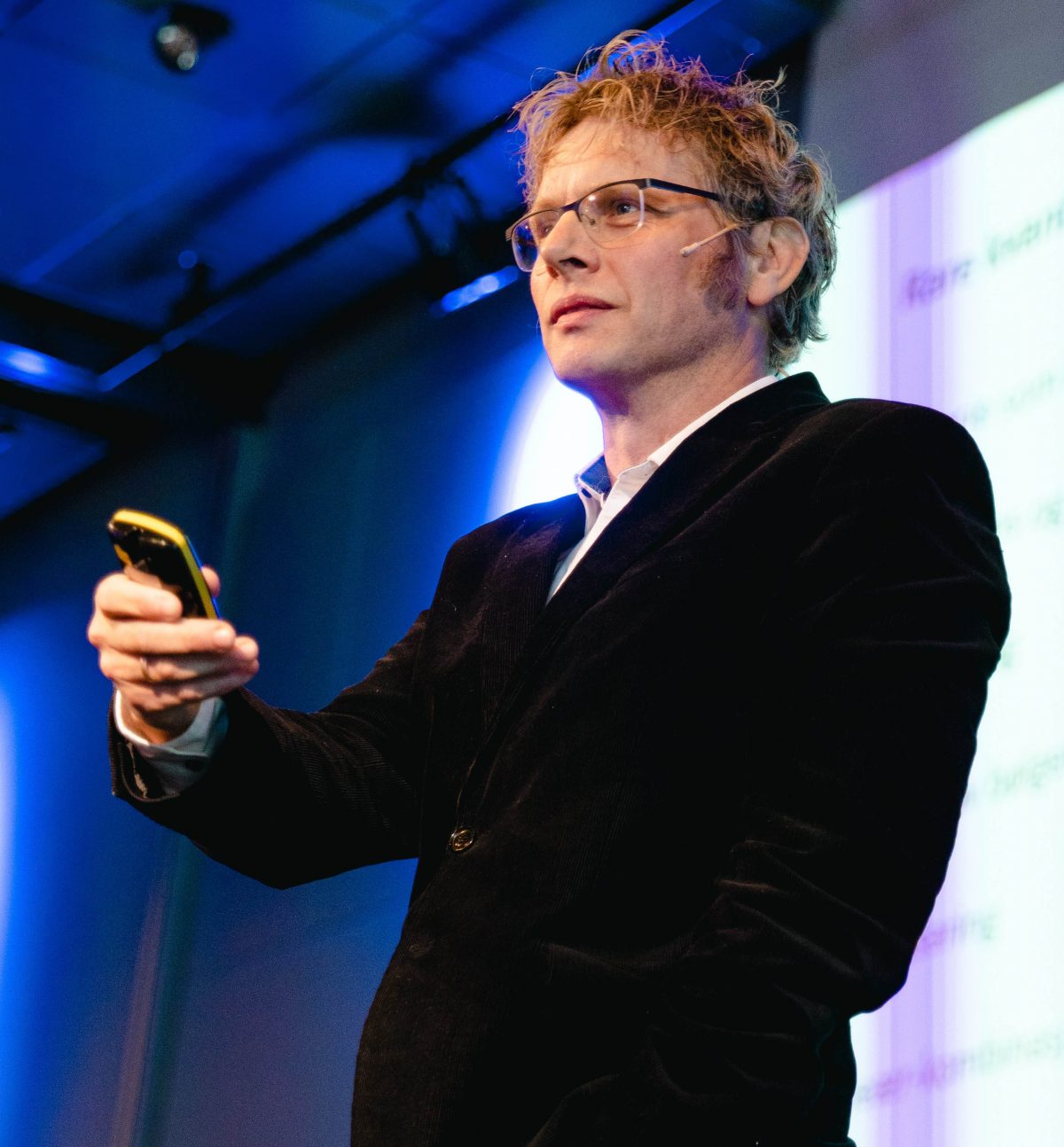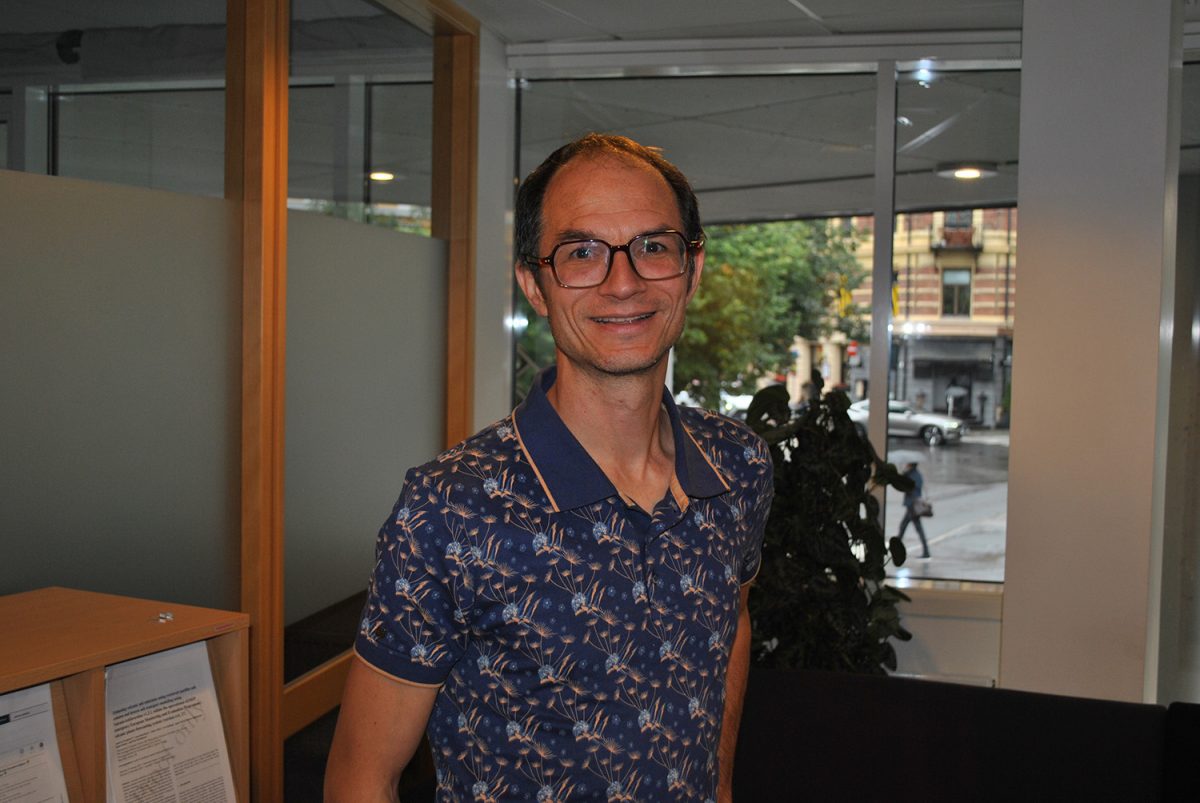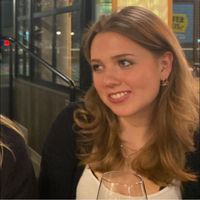Kvanteverden-kurs snur opp ned på universet
Kurset Introduksjon til kvanteverda for nyfikne gikk av stabelen denne høsten. Professor Sølve Selstø og studentene håper at flere får øynene opp for kvantefysikken.
Selv om emnet, som er et kurs med studiepoeng, kan være spesielt interessant for de som jobber med informasjonsteknologi, passer det for alle voksne.
Med kurset ønsker Selstø å vise hvorfor fagfeltet er av allmenn interesse.
– Denne teorien forklarer oss hvordan materiens minste byggesteiner er satt sammen. Mye av det vi opplever til daglig har en forklaring som legger kvantefysikk til grunn, i tillegg blir en rekke kvantefenomener utnyttet teknologisk. Det har man gjort i mange hundre år, men nå ser vi konturene av det som kalles den andre kvanterevolusjonen, forteller Selstø.
Den andre kvanterevolusjonen innebærer en ny form for kvantedatabehandling, som tillater algoritmer som ikke kan kjøres på vanlige datamaskiner. Da kan vi finne mer effektive løsninger på spesifikke problemer.
– En annen grunn til at det er verdt å bli kjent med kvanteverdenen er at den er både vakker og rar. Vi blir utfordret i møte med den, fortsetter Selstø.
– Morsomste timene i uka
Martin Hovdøn (56) har bakgrunn som statsautorisert revisor og økonomidirektør, men nå er han fornøyd med å være tilbake på skolebenken i noen timer hver uke.
– Det er veldig, veldig gøy. Det er de morsomste timene i hele uka. Jeg digger å komme hit og være student, forteller han.
Hovdøn fikk høre om kurset ved en tilfeldighet.
– En jeg spiste lunsj med spurte meg om jeg visste hva kvantefysikk var, og det gjorde jeg ikke. Han forklarte at det kan gi veldig stor datakraft, og hvis man klarer å kontrollere den så kan man få “superdatamaskiner”, forteller han.
Det var podkasten Kvantespranget, med Selstø som gjest, som til slutt inspirerte han til å søke. På podkasten lovet Selstø at kurset skulle være lavterskel, noe Hovdøn er enig i at det er.
– Selv én som meg, som har hatt veldig lite matematikk og ikke noe fysikk i det hele tatt, får noe ut av det. Jeg tror det kan være relevant i jobben min også.
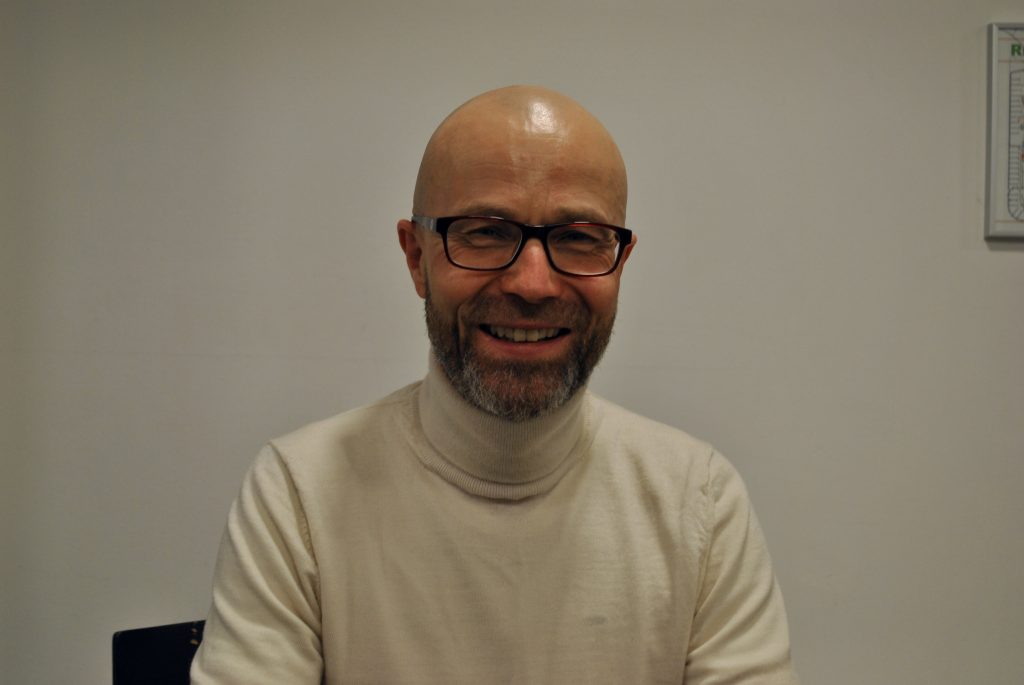
Vil inspirere unge
Gunn Heidi Freitag (49) har alltid hatt en interesse for naturfag, men avskrev i utgangspunktet fysikk fordi det var kjedelig og ikke åpnet for å utforske og tenke kreativt.
– Så feil kan man ta. Nevøen min begynte å studere fysikk, og jo mer han fortalte om kvantefysikken, jo mer skjønte jeg hvor lite jeg forstod om verden. Så når jeg fant dette kurset, måtte jeg bare kaste meg på. Og det har jeg ikke angret på, forteller hun.
Nå håper hun å kunne bidra med mer kunnskap til samtalene, og gi noe tilbake til nevøen.
– Og hvis jeg ikke går inn på noe naturfaglig, har jeg lyst til å jobbe med barn og unge. Så kanskje jeg kan bidra til å inspirere ungdommen til å tenke naturfaglig, forteller hun.
Freitag setter spesielt pris på læringsmiljøet i klasserommet.
– Sølve er engasjert og forklarer ut fra våre forutsetninger. Han får veldig mye spørsmål, men vi får aldri følelsen av at vi stiller dumme spørsmål.
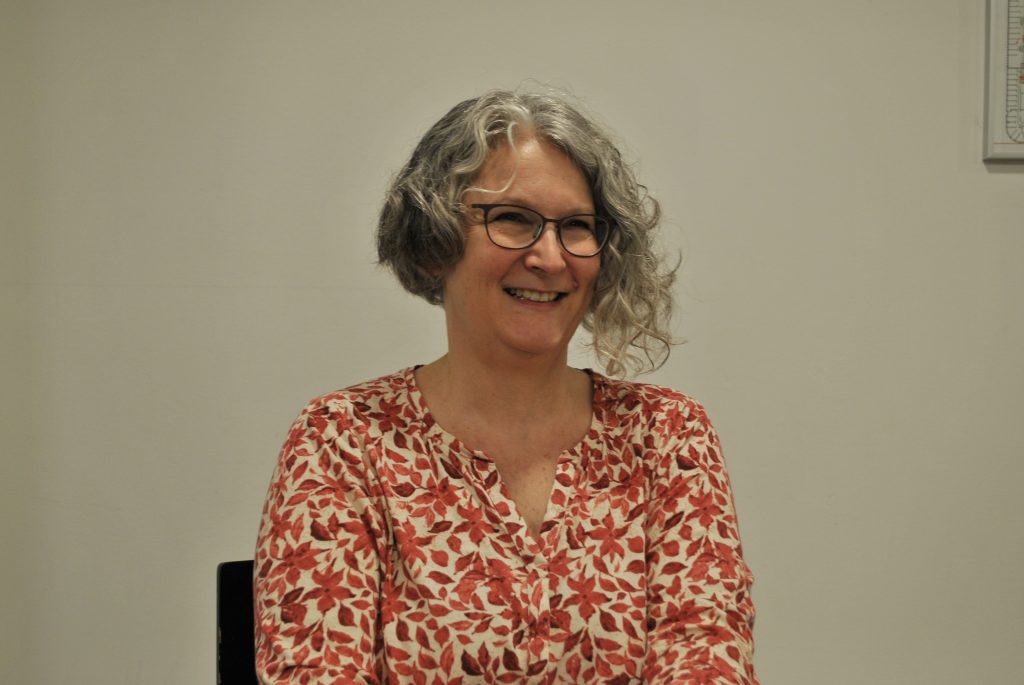
– Andre regler
Freitag og Hovdøn er begge fascinert av kvantefysikken, og håper at flere tar del i kvanteverdenen.
– Disse teoriene snur fullstendig opp ned på min forståelse av universet. Og den undringen ønsker jeg at flere unge skal få oppleve, sier hun.
Hovdøn synes også at det er viktig at flere forstår potensialet i kvantefysikken. Selv om det forskes mye på temaet, forskes det ikke så mye i Norge.
– Kvantefysikken opererer med helt andre regler enn vi gjør i den observerbare, fysiske verden, og det er veldig fascinerende. Det har så stor betydning allerede i dag, sier han.
Introduksjon til kvanteverda for nyfikne
Gjøre greie for hovedtrekkene i den historiske utviklingen av kvantefysikken.
Ha en viss forståelse for at materie må oppfattes som både bølger og partikler.
Kjenne til fenomener som er spesifikke for kvanteverdenen, som ikke har noen paralleller i den verdenen vi ser til daglig.
Vite hvordan visse enkle algoritmer for kvanteinformasjonsbehandling fungerer.
Kunne vise til eksempler på hvordan kvantefenomener som tunnellering, kvantisering og sammenfiltring kan utnyttes teknologisk.
Kjenne til hovedforskjellene mellom hvordan en vanlig, klassisk datamaskin og en kvantedatamaskin fungerer.
Være i stand til å sette opp og kjøre enkle kvanteprogrammer, enten på simulator eller på faktiske kvantedatamaskiner.
Til en viss grad kunne bruke begrepsapparatet knyttet til kvantefysikk og -teknologi.
Kunne medvirke konstruktivt i faglige samtaler som har med kvanteteknologi å gjøre.
Evne å diskutere og problematisere aspekter ved tolkningen av kvantefysikken.
